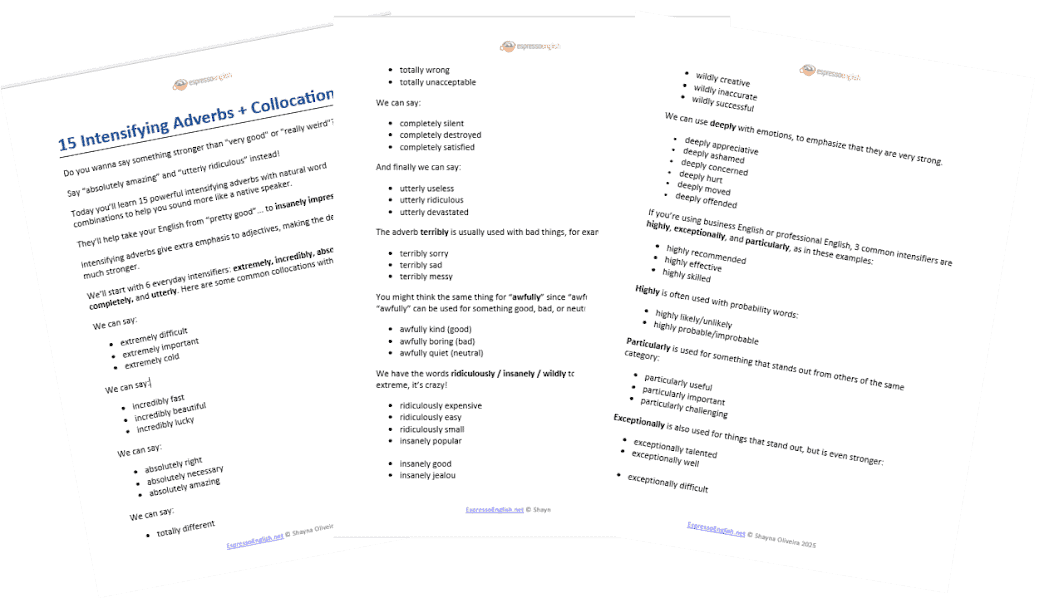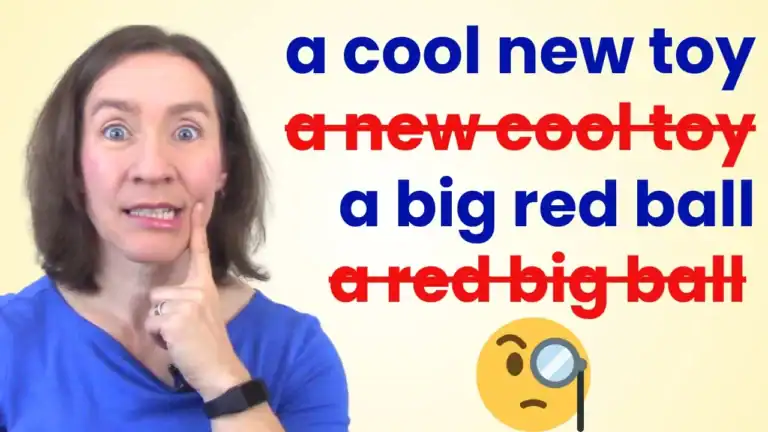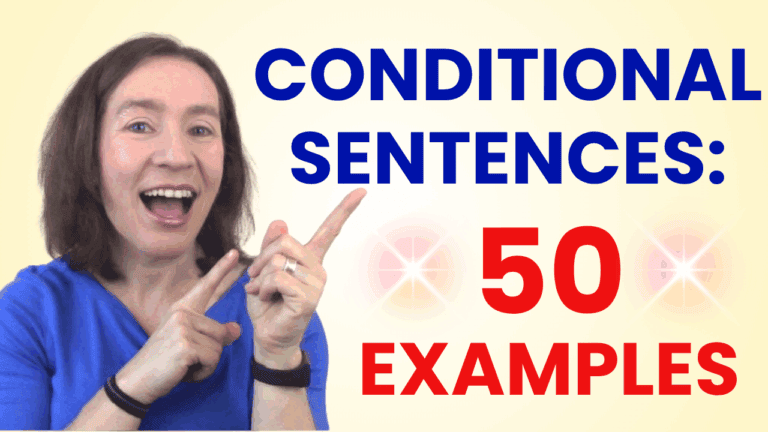
Do you want to say something stronger than “very good” or “really weird”?
Say “absolutely amazing” and “utterly ridiculous” instead!
In this lesson, you’ll learn 15 powerful intensifying adverbs with natural word combinations to help you sound more like a native speaker. They’ll help take your English from “pretty good”… to “insanely impressive”!
Make sure to download today’s lesson PDF by clicking here.
Intensifying adverbs give extra emphasis to adjectives, making the description much stronger.
We’ll start with 6 everyday intensifiers, which are extremely, incredibly, absolutely, totally, completely, and utterly. Here are some common collocations with each one:
We can say:
- extremely difficult
- extremely important
- extremely cold
We can say:
- incredibly fast
- incredibly beautiful
- incredibly lucky
We can say:
- absolutely right
- absolutely necessary
- absolutely amazing
We can say:
- totally different
- totally wrong
- totally unacceptable
We can say:
- completely silent
- completely destroyed
- completely satisfied
And finally we can say:
- utterly useless
- utterly ridiculous
- utterly devastated
The adverb terribly is usually used with bad things, for example:
- terribly sorry
- terribly sad
- terribly messy
You might think the same thing for “awfully” since “awful” means bad – but “awfully” can be used for something good, bad, or neutral:
- awfully kind (good)
- awfully boring (bad)
- awfully quiet (neutral)
We have the words ridiculously / insanely / wildly to say that something is so extreme, it’s crazy!
- ridiculously expensive
- ridiculously easy
- ridiculously small
- insanely popular
- insanely good
- insanely jealous
- wildly creative
- wildly inaccurate
- wildly successful
We can use deeply with emotions, to emphasize that they are very strong:
- deeply appreciative
- deeply ashamed
- deeply concerned
- deeply hurt
- deeply moved
- deeply offended
If you’re using business English or professional English, three common intensifiers are highly, exceptionally, and particularly, as in these examples:
- highly recommended
- highly effective
- highly skilled
Highly is often used with probability words:
- highly likely/unlikely
- highly probable/improbable
Particularly is used for something that stands out from others of the same category:
- particularly useful
- particularly important
- particularly challenging
Exceptionally is also used for things that stand out, but is even stronger:
- exceptionally talented
- exceptionally well
- exceptionally difficult
Want an incredibly easy and ridiculously cheap way to learn more?









